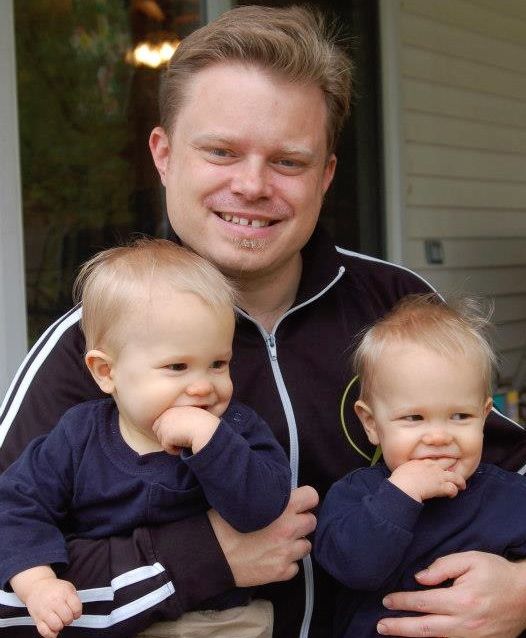Ashbrook Alumnus Inspires Community to Found a School
December 24, 2020

 Ashbrook Scholar alumnus Rich Policz dreamed of a high school based on Christian principles and following a classical model of education. He proposed the idea to the head of the primary school that his church already sponsored. The administrator was intrigued. Soon Policz found himself building a new career.
Ashbrook Scholar alumnus Rich Policz dreamed of a high school based on Christian principles and following a classical model of education. He proposed the idea to the head of the primary school that his church already sponsored. The administrator was intrigued. Soon Policz found himself building a new career.
Eleven years of thoughtful, faithful work followed. But today Policz is Principal of Veritas Classical Christian Academy in Ashland, Ohio, now welcoming its second class of freshmen students.
Policz, a 1997 graduate of the Ashbrook Scholar program, made the most of his undergraduate years, majoring in philosophy and political science, minoring in psychology and religion, writing for the college newspaper, and playing in the marching band. As a student he also attended Grace Brethren Church in Ashland, continuing after graduation as a member. Policz became interested in an educational outreach of the church, Ashland Christian School, which serves kindergarten through grade eight. He proposed a way to expand and deepen the school’s program. After outlining his vision, he was asked, “Well, when can you start
The classical model for education that Policz recommended views education as occurring in three stages, traditionally grouped under the headings of grammar, logic, and rhetoric. “Grammar” encompasses the range of basic facts young students need to master, from the rules of language to the multiplication tables. “Logic” enters education later, around sixth to eighth grade, as students begin to assert independence of thought. Middle school students question the structures they live within, and need tools to help them frame the questions arising in their minds and reason out answers. By high school, students need to master tools of rhetoric: “how to craft arguments and discuss ideas in intelligent and winsome ways,” as Policz explains.
Policz was working happily as a designer and salesman for home decks and patios when he first spoke to Ashland Christian School about the classical model for education. But he agreed to devote Friday afternoons to teaching a logic class for seventh and eighth graders. Six years ago, he moved from volunteer involvement to a paid position as the Director of Development and Worldview for Ashland Christian, a job that involves interpreting the mission of the school to potential partners, donors and volunteers in the community.
By 2012 the school was ready to launch a high school, building it one class at a time. Twelve students made up the first freshman class; 21 more freshmen enter this fall. In planning the curriculum, Policz has set ambitious goals for academic rigor and depth. His experience as an Ashbrook Scholar influences this determination. “The Ashbrook program expects excellence from students; they believe students will rise to the goal you set for them. We take the same approach,” Policz said.
A decision to use iPad technology opened up the school’s curricular options. “Our classrooms are almost completely digital,” Policz explains. “This allows us to access original source documents. We don’t have to buy and store books. Using iPads, students can highlight the texts they read and add notes to the texts. This makes us different from a lot of other classical schools: we readily embrace new technology, but we use it to teach in an older and better style.” That style emphasizes the classics of the Western canon, pursues interdisciplinary connections, and supports a Christ-centered worldview.
In its first two years the school is being staffed by volunteers, many drawn from local colleges, including some faculty and upperclassmen in the Ashbrook Scholar program who offer special lessons or serve as mentors. Policz himself teaches “Great Books” classes—a freshman course that spans masterworks from the Greeks through Shakespeare, and a sophomore course, co-taught with Ashbrook Scholar alumna Becky Sherman Brown, that covers selected British plays and novels in their entirety. Policz says he learned to teach literature in the Scholar program. “Dr. Peter Schramm taught me how to read and discuss books,” Policz said. “He actually taught me to appreciate Jane Austen.”
Ashland Christian School has seen its middle school enrollment rise as parents realize their students will be able to continue into an affiliated high school that carries forward the classical view of education. By the fall of 2014, Policz expects to have a robust enrollment in the high school and the ability to hire teachers on contract.
Policz, in boldly sharing his convictions about education, has inspired a community to build an opportunity for young people that did not exist before. His example shows how even after graduation, Ashbrook Scholars continue growing into the high goals the program helps them set for themselves.

